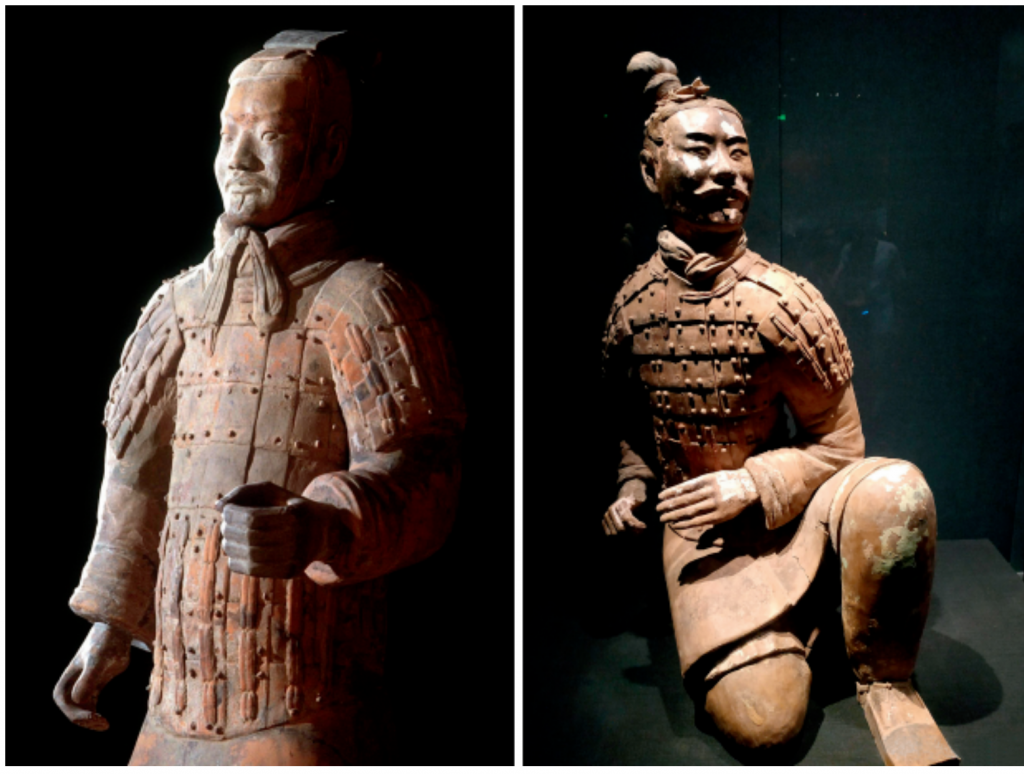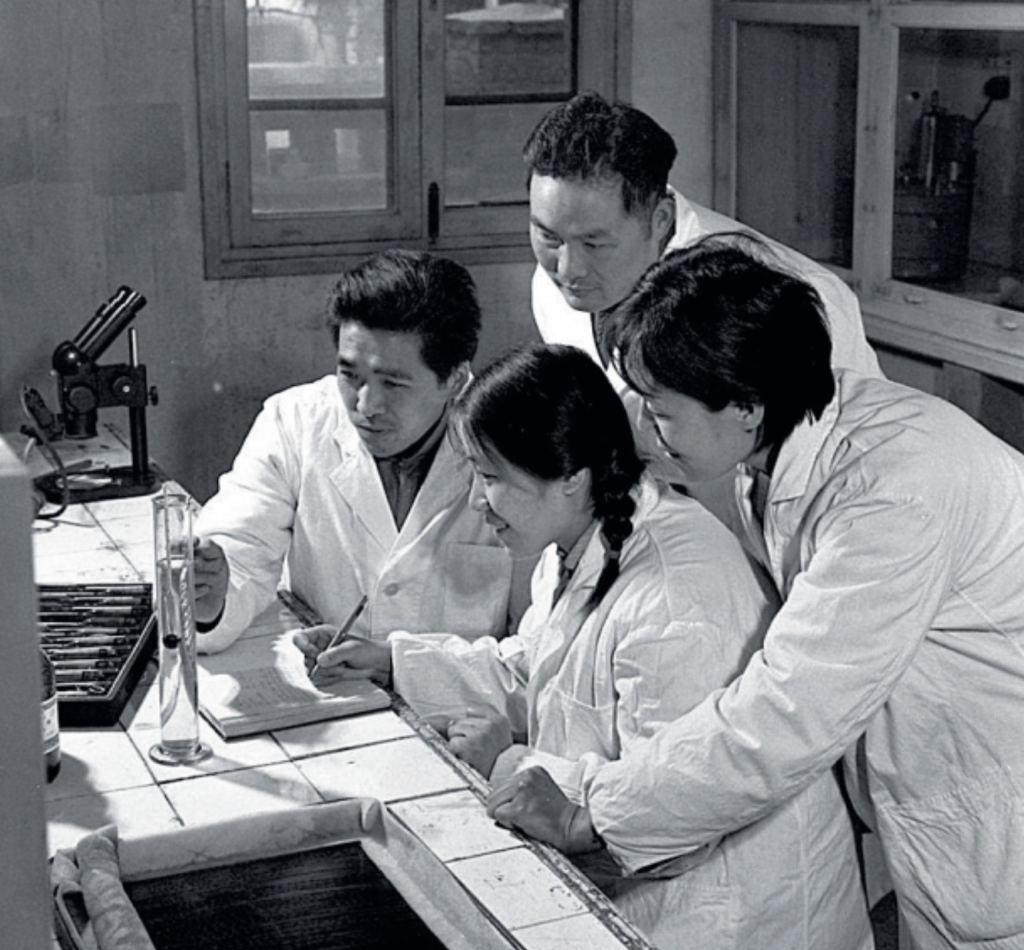“Six kings fallen, all lands unified,
Mount Shu was flattened, and Epang Palace rose.
Spanning over 300 miles,
Its grandeur obscured even the sun and sky…”
This is how Du Mu, a Tang Dynasty poet, envisioned the Qin Dynasty’s magnificent yet short-lived empire in his famous work Epang Palace Rhapsody. Though the Qin Empire lasted only 14 years, its influence echoed through Chinese history for over two millennia. It was the first centralized empire of China, and its ruler, Qin Shi Huang, was the first emperor. His reign was marked by grand projects such as the Great Wall and a vast road network—some of which remained in use long after the dynasty crumbled.
However, while Qin’s legacy shines through its unification efforts and monumental constructions, the empire was also infamous for its brutal legalism, military aggression, and harsh conscription policies. Historical records often depict the Qin army as an unstoppable war machine, but how did this system really work? What was it like to be a soldier in the Qin army? Thanks to the discovery of the Yunmeng Sleeping Tiger Land Qin Slips in the late 20th century, we now have a clearer glimpse into the reality of Qin’s military service.

The Heavy Burden of Military Service
If you were a young man in Qin, you didn’t have much choice about your future—you were born into a system that valued you primarily as a resource for war and labor. The state had an extensive household registration system to keep track of its people and mobilize them when needed. Traditionally, historians believed that Qin men started their military service at 23, serving twice—once to guard the capital (zheng zu, 正卒) and once to defend the frontier (shu zu, 戍卒). But the Sleeping Tiger Land Qin Slips suggest otherwise.
A particular set of bamboo slips, known as the Chronicles, recorded the life of a man named Xi (喜). According to the records, he was registered for military service at 17 and participated in battles as early as 19. Throughout his life, he was called to serve multiple times—far more than the “two-time service” rule suggested by previous historical accounts. This challenges the long-standing belief that Qin soldiers only served twice in their lifetimes. Instead, it seems that once a young man entered the military system, he could be called back at any time, again and again, until fate or the battlefield took him.
Even after Qin unified China, the demand for soldiers did not decrease. Qin Shi Huang continued waging wars—campaigning against the Xiongnu in the north and the Baiyue tribes in the south. In 214 BCE, Qin’s southern campaign saw tens of thousands of casualties, described in Huainanzi as “corpses lying in rivers of blood.” Given this level of warfare, it is unlikely that the Qin government suddenly relaxed its military recruitment policies after unification.
The reality was harsh: Qin men, once registered, could be sent to war at any time. Many never returned. Historical records from the Han Dynasty later described Qin’s rule as qióng wǔ jí zhà (穷武极诈)—”exhausting war and extreme cunning”—which, considering the endless cycles of conscription, was not an exaggeration.
The Ruthless Race for Military Merit
Qin’s military was not only relentless in recruitment but also highly competitive in promotion. One of the key reforms of Qin’s rise to power was the military merit system (jun gong zhi, 军功制). Under this system, noble birth did not guarantee rank. Instead, promotions were based on achievements in battle—specifically, the number of enemy heads collected.
Yes, heads.
To rise through the ranks, a soldier had to present severed enemy heads as proof of his victories. But here’s the catch: this rule only applied to lower-ranking soldiers. The Sleeping Tiger Land Qin Slips reveal an interesting regulation—officers of rank da fu (大夫) or higher were not allowed to personally kill enemies for military merit. If they did, they would be punished instead of rewarded.
Why? Because Qin understood a fundamental truth about warfare: brute force alone does not make a great general. If promotions were purely based on individual head-counting, every officer would be too busy swinging their swords instead of leading troops effectively. This rule ensured that military leadership was based on command skills rather than just personal combat ability.
However, this system had its flaws. When promotions depended on enemy heads, soldiers sometimes got creative—by turning on each other. The Sleeping Tiger Land Qin Slips record cases where Qin soldiers killed their comrades to steal credit. In one instance, a soldier saw another trying to behead a fellow Qin soldier and intervened. In another, two soldiers fought over a severed head, forcing a superior officer to investigate whether it belonged to an enemy or a fellow Qin soldier.
Such incidents reveal the darker side of Qin’s military meritocracy. On one hand, it produced a highly motivated and aggressive army. On the other, it fostered internal conflict and even betrayal. The idea of brotherhood in arms, as seen in ancient war songs like “Shall I lack clothing? I will share my robe with you”, likely faded under the brutal pressure of military competition.

The Paradox of Qin’s Military System
Qin’s military system was a double-edged sword. It was efficient and effective—after all, it enabled Qin to conquer six kingdoms and unify China. But it was also a system that treated soldiers as disposable. They were mobilized young, served repeatedly, and faced intense pressure to gain military merit—sometimes at the cost of their own comrades’ lives.
In the end, the very structure that made Qin strong may have also contributed to its downfall. After Qin Shi Huang’s death, the empire collapsed within four years, torn apart by rebellions. The same people who had fought for Qin’s expansion were now fighting for its destruction.
The Sleeping Tiger Land Qin Slips offer a rare and invaluable glimpse into the lives of ordinary Qin soldiers—lives filled with duty, violence, and little personal agency. It turns out, behind the grandeur of the first empire, beneath the towering walls of the Great Wall, and beyond the brilliance of the Epang Palace, there were thousands of men who bled, fought, and perished—unsung, unseen, and forgotten.
And in that, perhaps, lies the true price of empire.

No comments yet.